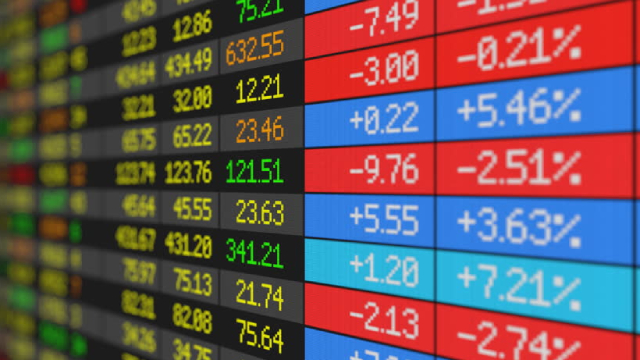A Deep Dive into Recent Economic Indicators and Their Impact
The economic landscape has been a subject of intense scrutiny as of late, with investors and analysts closely monitoring various indicators to gauge the health of the economy. While some aspects have shown promise, others have raised concerns. In this post, we’ll delve into the latest developments regarding inflation, costs of capital, and their impact on the investment world.
Underperforming Constituent Parts: Inflation and Costs of Capital
The demand side of the economy has been holding up relatively well, but a closer look at some constituent parts reveals underlying issues. The primary culprits are inflation assumptions and costs of capital. The former is particularly relevant when considering the performance of certain sectors, such as real estate.
The Consumer Price Index (CPI) reading has been a point of interest in this context. The latest CPI report showed a modest increase, which was generally in line with expectations. However, the continued fall in oil prices could provide meaningful assistance in upcoming readings. This potential development could counteract otherwise troublesome inflation expectations, which have been a concern for some time.
Inflation Expectations: A Crucial Indicator
Inflation expectations have been a significant focus in recent economic discussions. These expectations play a crucial role in guiding investment decisions and shaping monetary policy. When inflation expectations are high, investors may demand higher returns to offset the anticipated loss of purchasing power. Conversely, when expectations are low, investors may be more willing to accept lower returns.
Recent data has shown that inflation expectations have retreated to local records. This trend has led some analysts to reconsider their positions in sectors that are particularly sensitive to inflation, such as real estate. Specifically, the iShares Core U.S. REIT ETF and other real estate investment trusts (REITs) have been avoided for the time being.
Looking Ahead: The Impact on Individuals and the World
So, what does all of this mean for individuals and the world at large? Let’s explore the potential implications.
Impact on Individuals
For individuals, the current economic landscape may translate into a few key takeaways. First, those holding REITs in their investment portfolios may want to reconsider their positions in light of the recent data on inflation expectations. Additionally, as inflation expectations continue to evolve, it’s essential to stay informed about the broader economic landscape and adjust investment strategies accordingly.
Impact on the World
On a global scale, the economic developments we’ve discussed could have far-reaching consequences. For instance, central banks may adjust their monetary policies in response to changing inflation expectations. This could lead to shifts in currency values and impact international trade.
Moreover, the performance of various sectors, such as real estate, could be influenced by these economic trends. As a result, investors and businesses operating in these sectors may need to adapt their strategies to account for the evolving economic landscape.
Conclusion: Staying Informed in a Changing Economy
In conclusion, the current economic landscape presents both opportunities and challenges. While some aspects, such as the demand side, may be holding up relatively well, other factors, like inflation assumptions and costs of capital, require closer attention. By staying informed and adapting to these trends, investors and individuals can position themselves to navigate the complex economic waters and make informed decisions.
- Understanding the relationship between inflation, costs of capital, and economic performance is crucial for making informed investment decisions.
- Recent data on inflation expectations and the CPI have led some analysts to reconsider their positions in REITs and other sectors sensitive to inflation.
- The potential implications of these economic trends extend beyond individual investments and could impact the broader global economy.
- Staying informed about these developments and adjusting investment strategies accordingly is essential for navigating the complex economic landscape.





